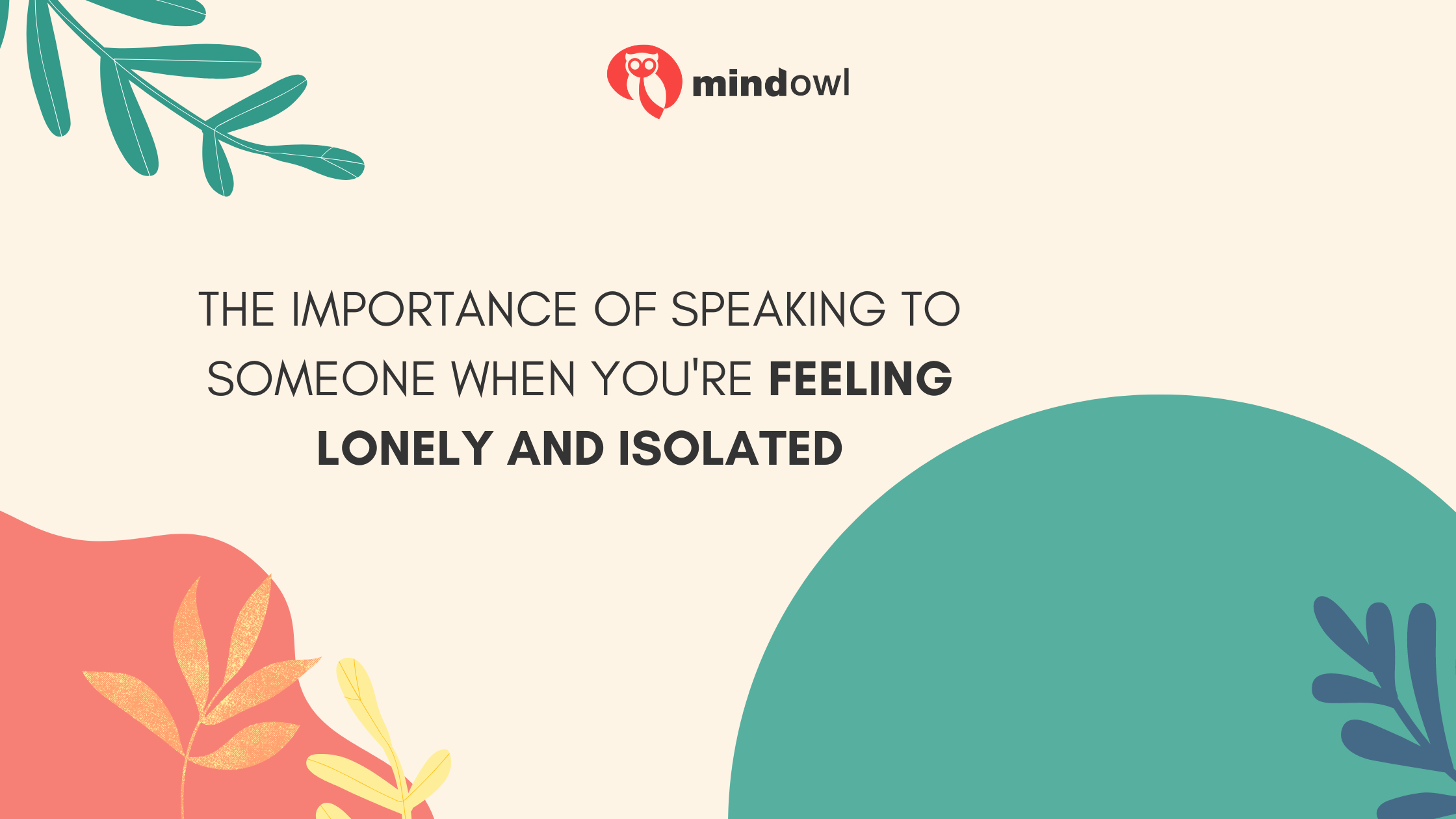Loneliness and isolation can cast a long shadow over one’s emotional and mental well-being. In an age where digital connections often replace face-to-face interactions, the sense of being alone in a crowd can be overwhelming. Expressing these feelings and finding solace through communication can be a vital step towards healing. The importance of reaching out cannot be understated, both for personal growth and for the nurturing of one’s mental health. Below, we delve into the nuances of why speaking to someone can make a substantial difference in coping with loneliness and isolation.
Understanding the Emotional Impact of Loneliness and Isolation

Loneliness isn’t just a fleeting feeling; it can have profound implications on our psychological state, leading to long-term repercussions if left unaddressed. The sensation of being disconnected from others can exacerbate symptoms of depression and anxiety, which in turn can become cyclical, further pushing one into isolation. This cycle can impact physical health too, with studies showing a correlation between prolonged loneliness and heart disease, among other health issues.
When we’re isolated, the lack of social feedback can distort our self-perception and erode our confidence. Without positive reinforcements that usually arise from interactions, one might begin to feel invisible or unworthy of attention and affection. The internal dialogue becomes critical, and the isolation can seem insurmountable, making outreach feel daunting.
Strategies to Find the Right Person to Talk To When You’re Isolated
When feeling alone, deciding who to turn to can be challenging. It might start with reflecting on relationships that make you feel safe and respected. Trusted friends, family members, or mentors who have shown empathy in the past can be a great starting point. It’s important to choose someone who can provide the level of understanding and support you need during tough times.
If reaching out to personal contacts seems too daunting, professional support is available. Therapists and counselors are trained to offer guidance and help process complex feelings in a structured environment. In a society that sometimes underestimates the power of professional help, taking the step to seek therapy is a proactive move toward self-care.
For those who prefer anonymity or are unable to access traditional support systems, there are numerous online platforms and helplines specifically designed to offer compassion and advice. A variety of support groups exist, both in-person and virtual, where shared experiences form the basis of community and mutual help. For instance, if you’re asking, “Who can I talk to?” online websites can provide a listener from online subcommunities.
The Role of Communication in Alleviating Negative Feelings
Communication is a cornerstone in the foundation of our emotional health. When we engage in meaningful conversations, it allows for the expression of thoughts and feelings that may have been suppressed. This release is not only cathartic but can also be the first step toward healing. Emotional articulation through dialogue aids in organizing one’s thoughts, making the overwhelming feel manageable.
Active listening is another aspect of communication that holds therapeutic value. When someone attentively listens to our concerns without judgment, it fosters a safe environment where vulnerability is respected. This empathy is a potent antidote to the feelings of alienation, as it reassures us that our feelings are heard and understood.
Overcoming the Stigma Attached to Expressing Vulnerability

The stigma surrounding vulnerability often presents a barrier to seeking help. Many people fear being perceived as weak or burdensome if they express their true feelings. However, it’s imperative to reframe vulnerability not as a weakness but as an act of courage. Recognizing the strength it takes to be open about our emotional state challenges these negative stereotypes.
Dismantling this stigma starts with creating spaces where vulnerability is seen as integral to the human experience. Encouraging open discussions about mental health and emotional struggles in various domains such as the workplace, educational institutions, and within families, can foster a culture of acceptance and support. By normalizing these conversations, we encourage others to speak out without fear of reprisal or judgment.
Overall, the act of reaching out and communicating is an invaluable tool in combating the feelings of loneliness and isolation. By understanding the emotional impacts, harnessing the power of shared experiences, and addressing the stigma of expressing vulnerability, we can take constructive steps toward improving our mental health. Strategies to find support are plentiful, and by taking the initiative to seek help, we move closer to a sense of community and personal well-being.
MindOwl Founder – My own struggles in life have led me to this path of understanding the human condition. I graduated with a bachelor’s degree in philosophy before completing a master’s degree in psychology at Regent’s University London. I then completed a postgraduate diploma in philosophical counselling before being trained in ACT (Acceptance and commitment therapy).
I’ve spent the last eight years studying the encounter of meditative practices with modern psychology.

